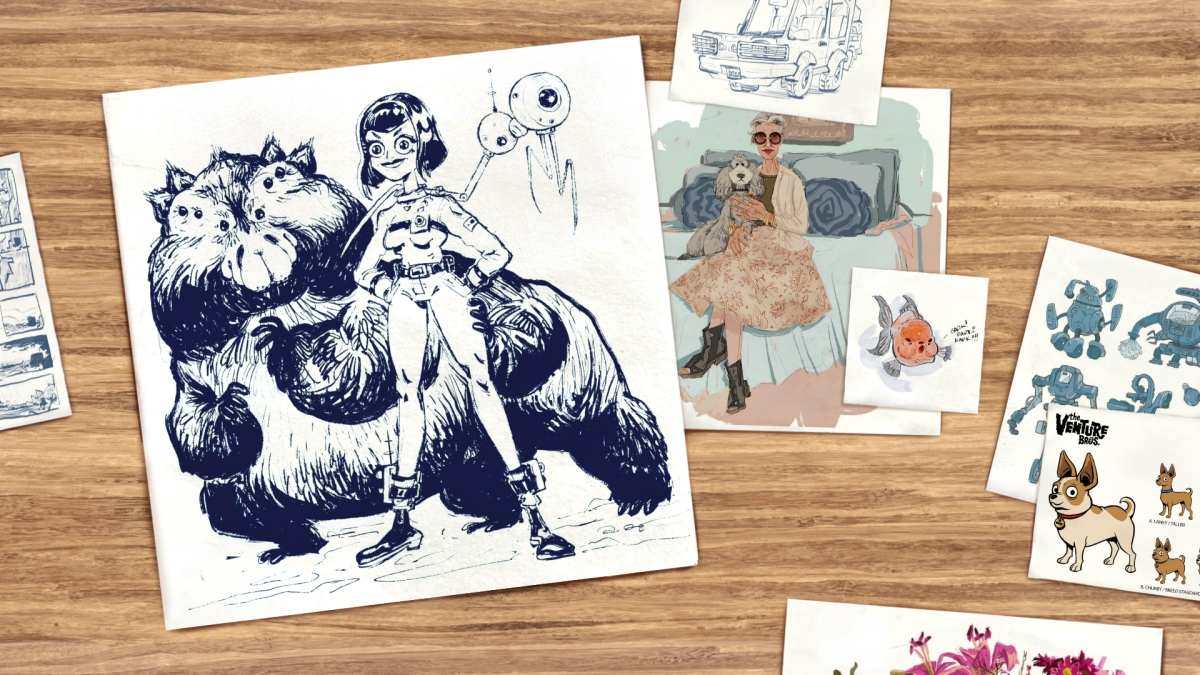Character Designer Kendra Melton (Venture Bros, MODOK, Rick & Morty), a self-proclaimed “bad ass,” is intense, gritty and absolutely delightful.
…proving that one can become confident and successful in the animation industry without becoming a jerk.
Today she talks with Chris Oatley about networking, breaking-in and why being a jerk is a bad way to go about it…
Do you have to be a jerk to succeed in animation?
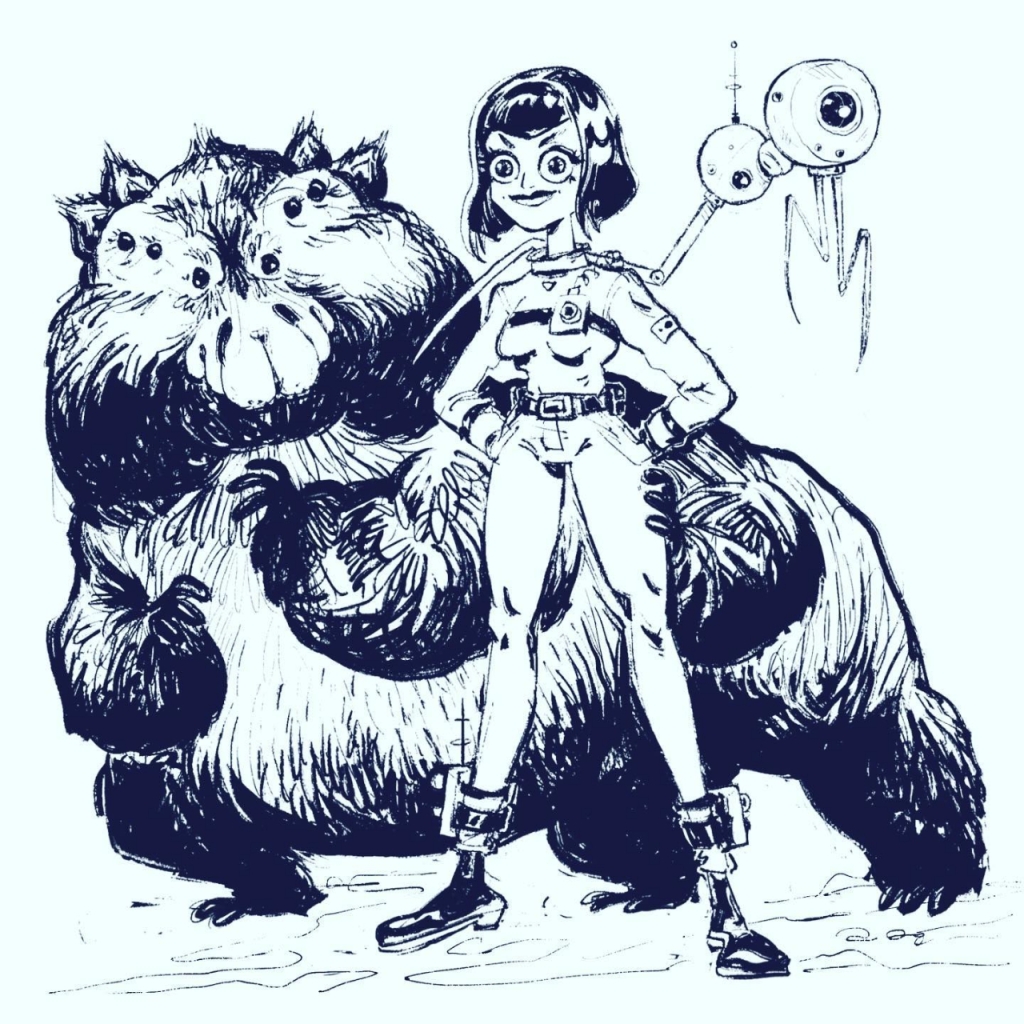
[Chris] One of my students who recently broke into animation attended a panel discussion that featured a team of extremely successful filmmakers. (I won’t say their names, but they’re super-hot right now.)
My student told me that the filmmakers’ advice was adversarial.
One of the major takes-away was: “Don’t be afraid to be a jerk.”
…and I thought: “Well, that’s easy for them to say. They have movies in development all over town and millions of dollars in the bank. Everybody wants to work with them.”
If their careers suddenly ended, they’d still be fine.
More importantly, it’s just really bad advice.
[Kendra] Yep. It’s easy to say when they’ve got that clout.
I’ve also seen the flip side of that coin.
…where it does not work out for those kinds of people.
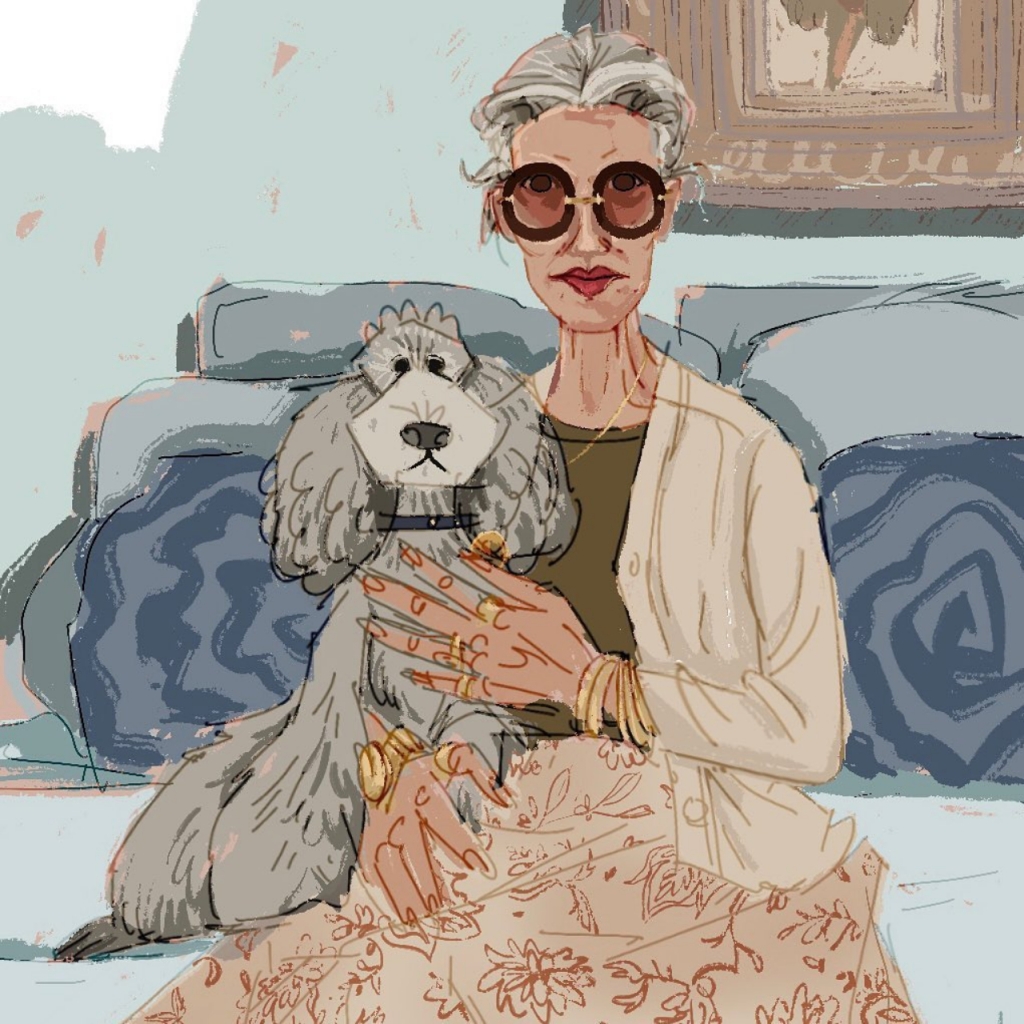
I was working in development [on a project] where both of the creators had a lot of experience in live action and animation.
…so I thought they understood [the animation] pipeline.
But I guess someone at the studio told them: “Fight for what you want! Demand it!”
…so they just wouldn’t listen to any [of us].
The director on the project tried to explain that we only had so much time and budget but they wouldn’t condense the script to fit a pilot or listen to producibility stuff like how we can’t make a character too complicated because it physically won’t animate.
…and then guess what happened to that show.
Poof! It’s gone!
You’re never gonna see that show.
…and why would anybody think that being a jerk will help them break into animation?
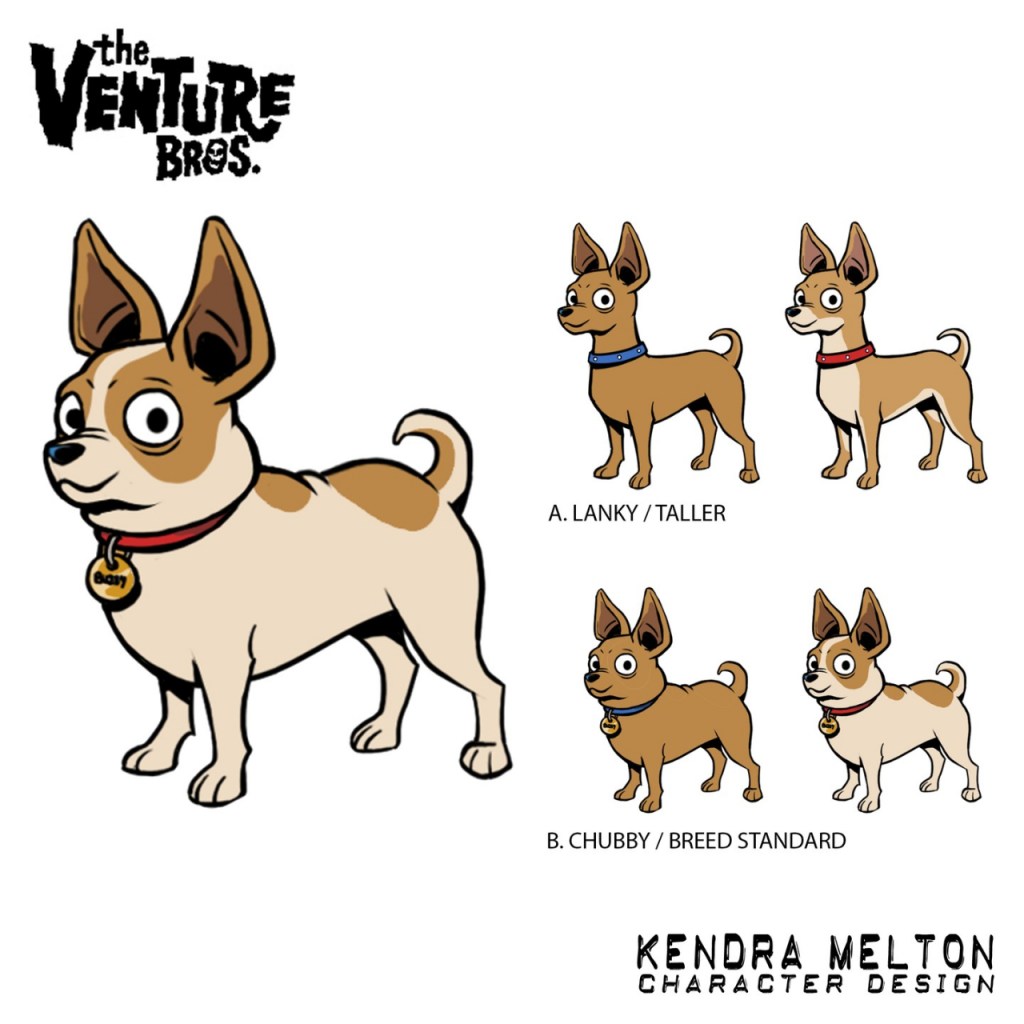
[Kendra] Right. The best way to get into the industry is to be social!
When I moved to Los Angeles, I didn’t know anybody. So I could either sit in my little hole or I could force myself to go out and make friends.
I would go to Gallery Nucleus all the time – to art openings – and just chat with people. I had to learn how to be more social and how to strike up random conversations.
It taught me a lot of social skills I probably didn’t have.
Don’t isolate yourself. Force yourself out of your comfort zone and make friends.
[Chris] People write to me all the time and say they can’t find a community.
I always respond: Then create one.
[Kendra] Yeah, you have to make it!
[Chris] Get a sketch group together and go to a(n ethically managed) zoo or a cafe…
[Kendra] Or show up to Sketch Crawl or Warrior Painters! There are groups everywhere.
[Start building] a community and your circle will grow from there.
If I didn’t go to The Drawing Club, I wouldn’t have a career.
Some of the friends I met there got me my first job (at Titmouse).
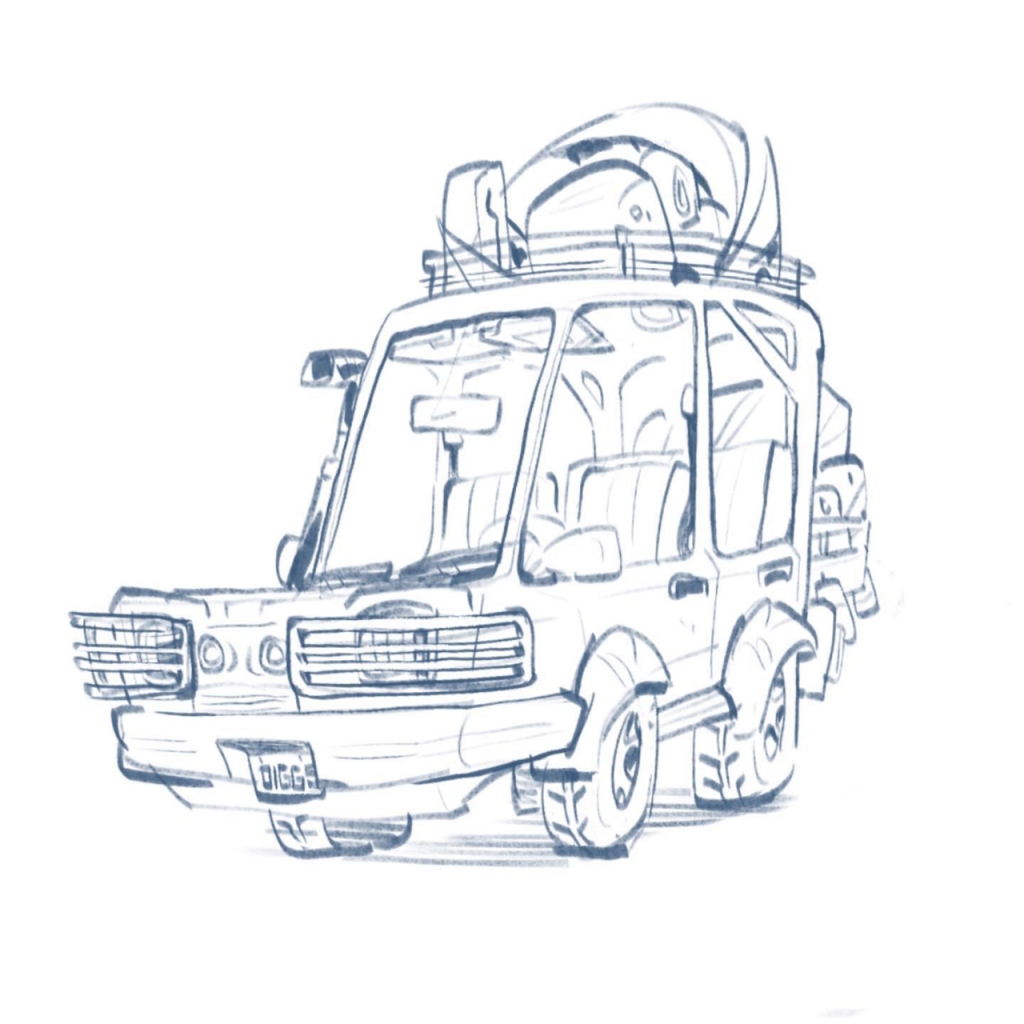
Now, whenever I leave a job or I’m looking for a new position, I just announce it and a bunch of friends reply: “Hey, do you want me to see if we have some openings over here?”
I [recently] left Rick and Morty, and I actually turned down a lot of offers because I’m trying to get out of adult comedies.
Animation is a community.
Everyone has to be looking out for each other, because there will be a time where your friend can’t find a job and [you can help them get one].
…and it will be the same for you one day.
The more friends you make in this industry, the more people that will be looking out for you when you need help.
I used to tell students all the time: Don’t be a jerk.
Be nice. Have an open heart. Be someone you would want to go drawing with!
You’ll have a long career because of that.
What are the jerkiest mistakes artists make when joining a new production?
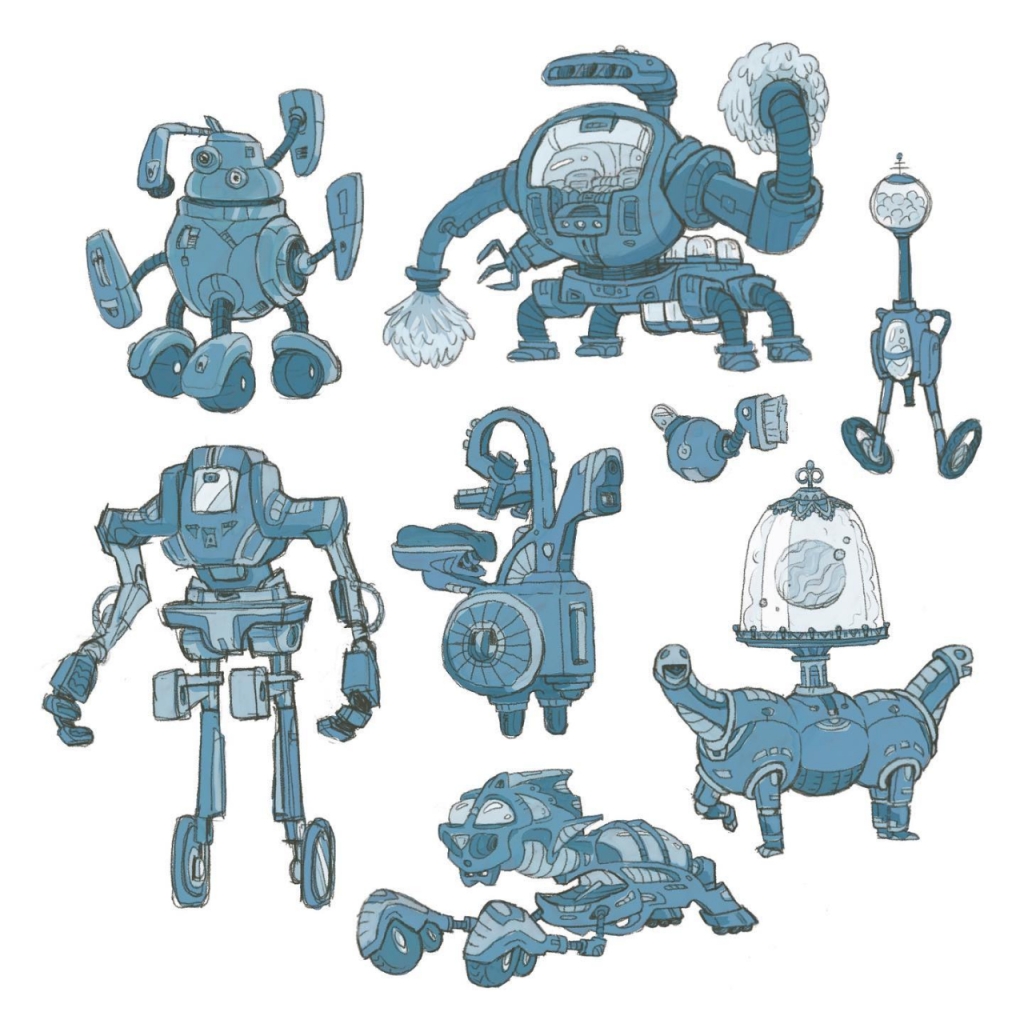
[Kendra] I know a lot of people don’t get hired back because of the way they react to getting notes. If you’re combative or rude, people won’t want to work with you!
…or if you come off like you know it all already.
Hell, I don’t know everything! I know I have blind spots. I’m constantly learning.
…and I love being told how badly I suck and where, why and how I need to fix it.
…but, I’m not the norm.
I think some people get scared. Being unreceptive to notes is a fear-based response – in my opinion.
Most people are very sensitive. If you say one thing the wrong way, you break them.
As a lead, the worst thing you can do is to make your artists feel like they’re incapable.
You have to inspire and empower and make them feel like they can succeed!
[When you’re receiving feedback], just keep reminding yourself that no-one is here to hurt you. None of it is personal. It’s all for the betterment of the show.
Whether it’s the creator, the showrunner, the art director or your lead, you’re here to get their vision onto the screen.
If it’s not your baby, don’t make it that way.
How can artists stay calm while preparing for (or working in) today’s fast-paced productions?
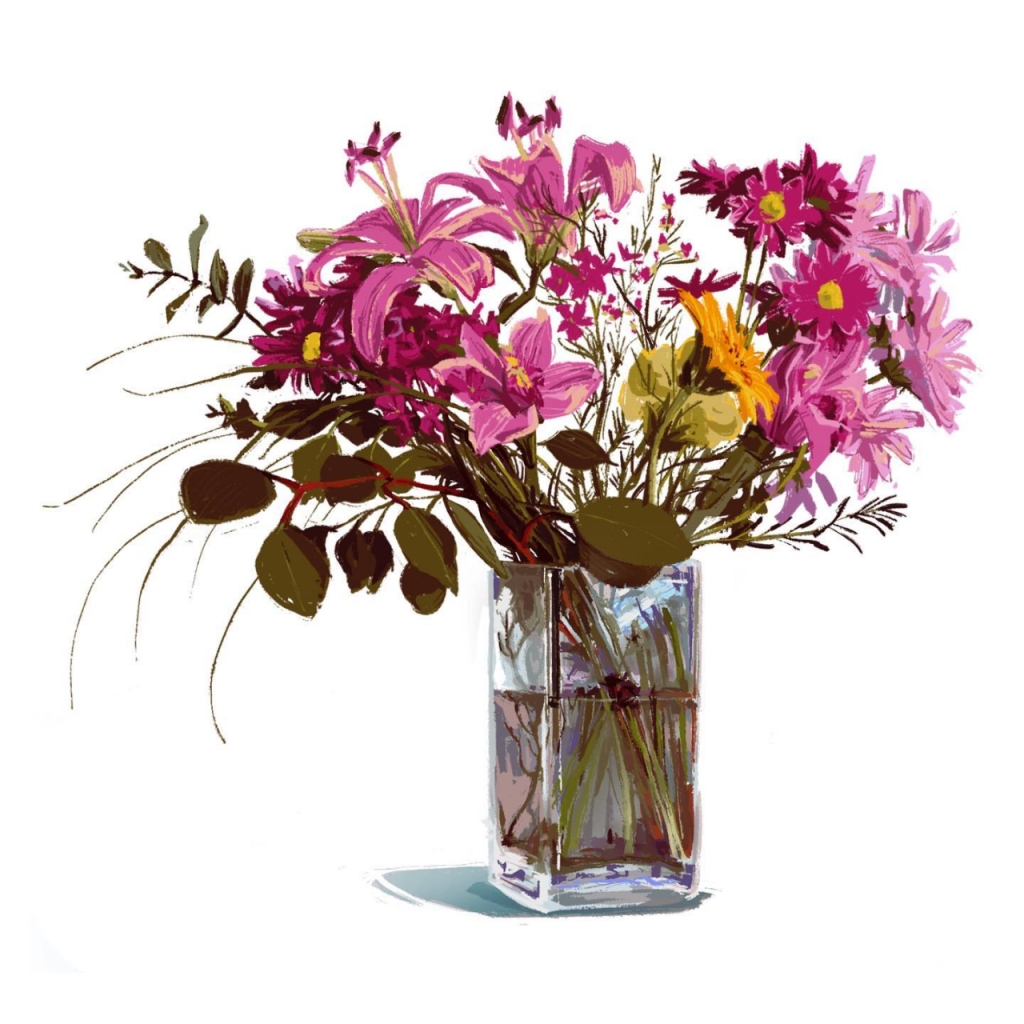
[Kendra] “Finishing” is the key.
If you’re trying to get somewhere with your art, you have to keep finishing things.
…because, if you don’t finish work, you won’t [learn] how to fix it.
The hardest part about getting your first job [is getting an animation studio to trust that you can] be placed in the pipeline and be successful.
They want to see in your portfolio that you can already do the job that they need you to do.
[When I was trying to break in] I thought: “My figure drawing should be enough, right?”
No. They need to see your final choices.
The same reason my roughs weren’t [enough] to get me a job is the same reason it won’t help you learn and grow as an artist.
At Titmouse, shows are so fast. You have to get things done on a very quick timeline. You learn early on you can’t just spend forever “feeling out” a design. You have to be scrappy. You have to make decisions quickly.
If you nitpick every little thing, you’ll miss deadlines.
I’ve been on shows where if you don’t get [a design] approved on the first pass, you won’t make your deadline.
(That’s how bad scheduling and budgets have become.)
[Chris] Yeah. Nobody has time for jerks.
Fortunately, almost everyone in the animation industry is very cool.
[Kendra] I’ve never met an amazing artist that wasn’t also the sweetest person on the planet.
There are so many good people in this industry…
…and the people who hide their work or are kind of cagey about it…
You don’t want their help.
…so if you run into someone who is unhelpful, mean, seems like they’re up to something…
Just run away!
Special thanks: To our guest Kendra Melton, our Production Coordinator Mari Gonzalez Curia and Content Producer Mona Lloyd for editorial contributions to this post. The interview was lightly edited for grammar, clarity and time.
Get Our Free Artists’ Mindset Course:
Subscribe via email to get each lesson in our new artists’ mindset course, industry interviews and notifications about mentorship opportunities. It’s 100% free and we will always respect your privacy.
